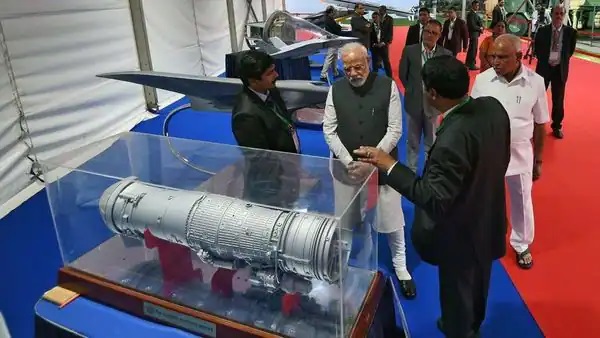Revolutionizing India’s Defence Innovation Landscape: PM Modi’s Bold Move

In a groundbreaking step aimed at rejuvenating the capabilities of the Defence Research and Development Organization (DRDO), Prime Minister Narendra Modi has initiated a comprehensive overhaul. Spearheaded by Defence Minister Rajnath Singh, this strategic initiative involves the establishment of a distinguished nine-member committee, led by renowned expert Prof. K VijayRaghavan. The committee’s mandate is to thoroughly assess and redefine the role of DRDO, subsequently presenting their findings within a concise three-month timeframe.
Prof. K VijayRaghavan, a former Principal Scientific Advisor to the Government of India and a pivotal figure in shaping the National Research Foundation (NRF), stands at the helm of this transformative endeavor. The primary goals of this monumental effort include enhancing performance accountability and purging underperforming elements within the organization. To ensure a multifaceted approach, the committee will harness the knowledge and insights of Non-Resident Indians (NRIs) and foreign consultants. This global collaboration is anticipated to accelerate the development of cutting-edge and disruptive defence technologies, solidifying India’s position at the forefront of innovation.
One of the core focal points of this initiative is the modernization of administrative, personnel, and financial systems within DRDO. By streamlining these essential functions, the aim is to expedite project implementation, reducing delays that have previously hindered progress. An overarching ambition is to create a more agile and responsive framework that can swiftly adapt to emerging challenges and opportunities.
Moreover, the overhaul seeks to rationalize laboratory structures and revamp the performance evaluation process. This crucial step ensures that DRDO remains at the zenith of its potential, consistently delivering breakthrough innovations. The move also reflects a keen understanding of the need to evolve and adapt to the dynamic nature of defence research and development.
The decision to review the operations of DRDO, alongside the broader defence research and production ecosystem, has been met with widespread anticipation. Prime Minister Modi’s personal involvement underscores his concern regarding issues of accountability and the protracted pace of research within DRDO. The organization, although functioning akin to a government Public Sector Undertaking (PSU), has often faced criticism for obstructing private sector involvement and hindering efficient procurement of hardware platforms for the Indian Armed Forces.
In particular, the DRDO’s stance on defence acquisitions has drawn scrutiny. Its historical tendency to claim development of products already imported and its supposed commitment to indigenization have led to impediments in crucial procurement processes. Notable examples include anti-tank guided missiles and unmanned aerial vehicles. Despite these challenges, the DRDO has made pioneering strides in guided missile systems, illustrating its potential for excellence.
The transformative initiative led by Prime Minister Modi, in close collaboration with Defence Minister Rajnath Singh and the expert committee under Prof. K VijayRaghavan, underscores a pivotal moment in India’s defence landscape. This holistic overhaul aims to not only reposition DRDO as a nimble and accountable entity but also to foster innovation, collaboration, and efficient utilization of resources. By leveraging global expertise and nurturing indigenous talent, India’s defence capabilities are poised to ascend to unprecedented heights.
News Mania Desk / Agnibeena Ghosh 24th August 2023






